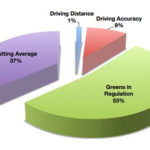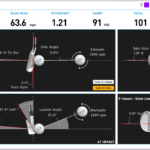How Jason Dufner Won the PGA Championship
 A few weeks ago Jason Dufner won the last major of 2013 – the PGA Championship. His total score of 10 under par was good for a 2 stroke victory over Jim Furyk. His calm demeanor and mellow attitude over the four day championship was the talk of the tournament and ultimately his key to victory.
A few weeks ago Jason Dufner won the last major of 2013 – the PGA Championship. His total score of 10 under par was good for a 2 stroke victory over Jim Furyk. His calm demeanor and mellow attitude over the four day championship was the talk of the tournament and ultimately his key to victory.
So what can we take from Dufner’s “non-emotional” victory? In most rounds of golf you have probably have had lots of “highs” and lots of “lows.” The emotional roller coaster that golf can take you on is definitely what makes it such an interesting sport.
A “high” during your round occurs after you’ve done particularly well. Maybe you hit a few great drives in a row, chipped in, made a birdie, or even holed out from the fairway (like Dufner did during one of his rounds). It’s great to be in this state of mind – but it’s easy to get over-excited and lose focus.
On the other hand, there are points in your round when you can feel very “low”. These times often occur after a poor shot or a series of poor shots. Maybe you hit it in the water, out of bounds, or just made a high number. It’s easy to get stuck at a low point and not recover for the rest of your round. Golf is already a tough game and being in a poor frame of mind doesn’t make it any easier.
Somewhere between the two extremes of being on a “high” and being “low” is an ideal spot to be during an entire round of golf. This is the emotional state that Dufner managed to stay in during the entire championship. His idol is Ben Hogan – the ultimate “non-emotional” golfer.
When a good golfer has a good round of golf going – it’s almost a “boring” round of golf. Nothing too special – keeping the ball in play, getting it on the green in regulation, then two putts. If this player happens to have a few birdies in the mix – then it turns into a pretty nice round.
The important thing to take away here is not to let yourself get too “high” or too “low” during your round. Yes, you should celebrate your great shots – but don’t let them affect your strategy moving forward. Similarly, don’t let bad shots or bad breaks get you down. Stick with what you know and stay positive that you’ll start to hit good shots again. This will help you keep your emotions in check and score consistently better.









